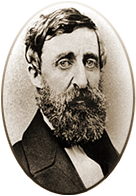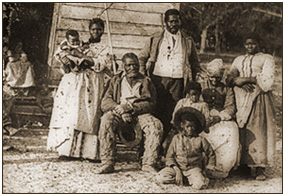|
 In 1849, Henry David Thoreau famously argued for the power of citizens to demand better government and policies in his essay "Civil Disobedience" (originally titled "Resistance to Civil Government"). "...I ask for, not at once no government, but at once a better government. Let every man make known what kind of government would command his respect, and that will be one step toward obtaining it." In 1849, Henry David Thoreau famously argued for the power of citizens to demand better government and policies in his essay "Civil Disobedience" (originally titled "Resistance to Civil Government"). "...I ask for, not at once no government, but at once a better government. Let every man make known what kind of government would command his respect, and that will be one step toward obtaining it."
"Civil Disobedience" was inspired by Thoreau's arrest in 1846 for refusing for six years to pay a poll tax in protest of both slavery and the Mexican-American War. Thoreau called for the use of what we now call "passive resistance" to laws perceived to be unjust, and predicted that individual resistance to unjust laws could have a significant effect on government and its policies.
I know this well, that if one thousand, if one hundred, if ten men whom I could name – if ten honest men only – ay, if one HONEST man, in this State of Massachusetts, ceasing to hold slaves, were actually to withdraw from this co-partnership, and be locked up in the county jail therefor, it would be the abolition of slavery in America. For it matters not how small the beginning may seem to be: what is once well done is done forever. |
 |
 |
Thoreau believed that individuals could be free only if their actions were true to their own beliefs, with or without the support or approval of the community, or of friends and family. His thoughts tapped into the vein of resistance that runs through American culture, but it also reflected his own strong individualism.
Thoreau would later inspire historic protest leaders such as Mohandas K. Gandhi and, through him, Martin Luther King, Jr. However, these leaders, responding to more pressing circumstances – and responding as members of subjugated classes of people sharply defined by the social markers of race and ethnicity – placed more emphasis on community and the disruptive effects of mass action. Thoreau's individualism would be modified as his theories were applied by others to collective action.
Next: Martin Luther King, Jr. >
|